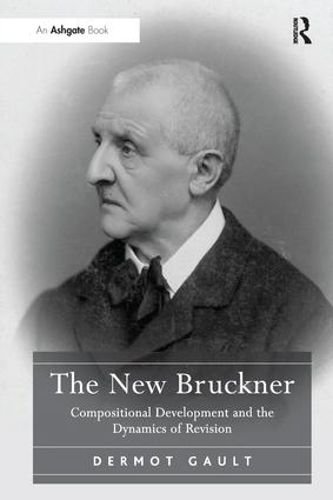Readings Newsletter
Become a Readings Member to make your shopping experience even easier.
Sign in or sign up for free!
You’re not far away from qualifying for FREE standard shipping within Australia
You’ve qualified for FREE standard shipping within Australia
The cart is loading…






The New Bruckner provides a valuable study of Bruckner’s music, focusing on the interaction of biography, textual scholarship, reception history and analysis. Dr Dermot Gault conveys a broad chronological narrative of Bruckner’s compositional development, interpolating analytical commentaries on the works and critical accounts of the notoriously complex and editorial issues. Gault corrects longstanding misconceptions about the composer’s revision process, and its relationship with the early editions and widely-held critical opinions. Bruckner’s constantly evolving engagement with symphonic form is traced by taking each revision in due order, rather than by taking each symphony on its own, and by relating the symphonies to other mature works such as the Te Deum, the three great Masses, and the Quintet, and argues that Bruckner’s music became more organic and less schematic as the result of his revisions. The book will be essential reading for those studying Bruckner’s compositions, the complex history of their reception, and late Romantic music in general.
$9.00 standard shipping within Australia
FREE standard shipping within Australia for orders over $100.00
Express & International shipping calculated at checkout
Stock availability can be subject to change without notice. We recommend calling the shop or contacting our online team to check availability of low stock items. Please see our Shopping Online page for more details.
The New Bruckner provides a valuable study of Bruckner’s music, focusing on the interaction of biography, textual scholarship, reception history and analysis. Dr Dermot Gault conveys a broad chronological narrative of Bruckner’s compositional development, interpolating analytical commentaries on the works and critical accounts of the notoriously complex and editorial issues. Gault corrects longstanding misconceptions about the composer’s revision process, and its relationship with the early editions and widely-held critical opinions. Bruckner’s constantly evolving engagement with symphonic form is traced by taking each revision in due order, rather than by taking each symphony on its own, and by relating the symphonies to other mature works such as the Te Deum, the three great Masses, and the Quintet, and argues that Bruckner’s music became more organic and less schematic as the result of his revisions. The book will be essential reading for those studying Bruckner’s compositions, the complex history of their reception, and late Romantic music in general.